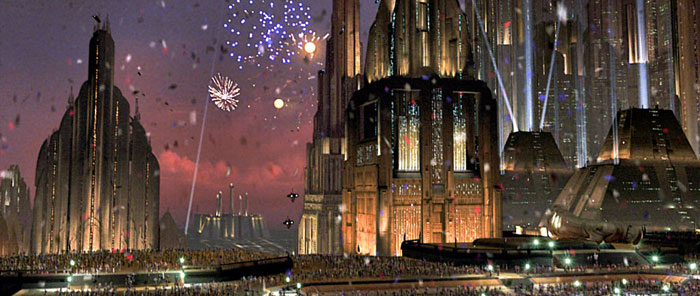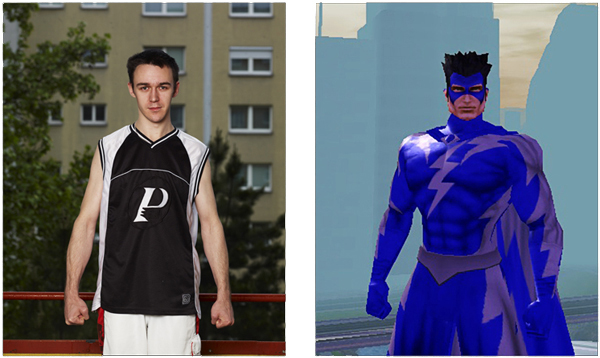My first article of the year and already I have this itching urge to clarifying something, namely:
I consider my life one big experiment, and ‘collecting’ many experiences is key. To achieve that, it means I sometimes do things which are considered morally wrong, leastwise according to the conventional system.
That ‘urge for experimenting’ however does not mean I will start smoking tobacco or cannabis, start visiting prostitutes, or that I will start to jump off buildings or in front of trains. It’s merely my own license to stop caring, say adieu to the conventional morals and do my own thing instead.
So this New Year’s Eve, due to several reasons, I was not duty-bound to anything, apart from the requirement of simply existing at the shift from 2011 to 2012. So I came up with a plan to go into the new year on a most memorable way. Because, seriously, how many memorable year-passings did you have? Whilst the day may seem so special, for me, most of them where very similar.
But not this year. Previous midnight, I spend my time with housemates and after midnight, I went to see some friends in Rotterdam, but at midnight itself, I endeavored into the virtual world of online gaming.
Well, there’s a sort of bad taste that sticks to gaming. It seems morally wrong, but if you think gaming is wrong, I think you are wrong.
Games appeal to many people, both male and female. As I said in the Playstation brand study, we crave for Carpe Diem without even knowing how it really tastes like. We play, because we can’t – or don’t know how to – experience life in full.
It might mystify some people why other people spend twenty hours a week in a video game, for seemingly no rewards. Apart from scientifically proven improvement in visual and language skills, those rewards are there, and they’re, depending on perspective, bigger than ‘offline’ rewards. More accessible as well.
In a game, you complete a quest, you get twelve pieces of gold and a piece of body armor. That’s a certainty. Study five times the amount of time on your exam and you’re still not sure whether you will satisfy your teacher. A cyclist has to train for years and years to be able to compete in the Tour de France, with a minimal chance of winning it. Games however, offer a short term possibility to real rewards. (If you’re seeking further info about this, I suggest you watch the documentary ‘Race to World First‘, which is well worth your time.)
For online games, you may add community as a reason to return every day.
Author Jane McGonigal insists gamers can change the world and she has some good points, but her main point is that bringing the enthusiasm for ‘gaming’ to good causes might do just that, whether that will be in games or offline. But for more info, check her TED talk.
The virtual world is the real world, and if you disagree, you’re the one who’s not part of the real world.
I think by saying that, people no longer account Facebook, MySpace or Twitter to be part of the virtual world but there was a time people did. Pictures posted on these social networks, could find their way offline as well. People are aware of that now, and I think it is only a matter of time before the same thing will happen to online video games.
Gone are the days where I played World of Warcraft, but the memories remain. Now, motivated by more glory-hunting, I tried out the new MMORPG (this means Massive-Multiplayer-Online-Role-Playing-Game), Star Wars: The Old Republic. That’s oughta be geeky enough, right?
I logged on, and together with about thirty, players, we grouped in the capital city Coruscant, in front of the big tower that stands in the middle. There, with people I don’t know from all across the world, I went into the new year. For me, it was monumental and writing about it makes me scramble for words. Perhaps it mainly lies in the recognition of the truth that there where about thirty other people, like me, gazing at their computer screen, yet we all felt to be in the same place. It gave a feeling a bit similar to watching a cult movie.

Internet memes occasionally refer to ‘a parallel universe’. This term originates from science-fiction, but nowadays I think it applies perfectly to Azeroth, Hyboria, Kanto, Tyria, the DC Universe, the Star Wars Galaxy and all those other virtual words.
Azeroth alone, the planet where World of Warcraft takes place, is occupied by twelve million people from around the world.
What’s great about such virtual worlds is how they can be of such inspiration. Players are set free in an open world, and just like the inventor of the hammer who didn’t know what others could create with his tool, Blizzard, the maker of WoW, did not know what would happen in their big virtual sandbox.
They’re guidings sure, such as roads, cities, quests but the player has great liberty to do as he or she pleases.
This manifests itself first and foremost in the behaviour of players. I think the behaviour in general, wherever we are, comes from fragments of ourselves. We’re not the always the same. My Spanish housemate, who by all means, isn’t fat, insisted there was a fat guy inside him. He’d eat healthy all week but sometimes the fat guy woke up and he craved for fastfood. I think he’s spot on.
We don’t act like how we do in a bar, as we do at work, for obvious reasons. And on Facebook, we have a slightly different identity than offline. Most probably you look a bit happier and successful on Facebook.
There’s an even bigger gap between offline and online identity in video games. Less bound by fear or morals, and safely tucked away behind their monitor (what could go wrong?), they show who they really are, or wish to be. People become players and venture into the virtual world made for them, and from then on, it’s a matter of natural selection.
Robbie Cooper created a wonderful photography series called ‘Alter Ego’, which showed one person, offline and online. One sample:

Apparently, something in this guy wanted to be a serious muscular super hero, and the game gave him the tools. But ‘fragmented-behaviour’ goes further than character customization.
IBM once conducted a research called ‘Virtual Worlds, Real Leaders’. Byron Reeves, a guy with far too many titles, said:
“If you want to see what business leadership may look like in three to ?ve years, look at what’s happening in online games.”
Cause leadership is what happens in these groups of players called guilds or clans. Some guilds focus on leveling, some on Player-versus-Player combat, some on Player-versus-Environment, some are casual, some hardcore and others somewhere in between. There are even guilds that focus on lore. From my memory I can recall a guild back in 2005 where only human- race characters where allowed entrance. Elves, dwarfs and gnomes where excluded. Also, people with the same language or from the same country come together.
Guilds are just made like companies, like when there is a ‘gap’ in the market. For instance, if a server has no Dutch guild and there is a need for it, it will be created.
But the leaders (plural!) of these guilds are pricked from a natural selection as well. Some guilds have a strong democracy but in general, the person who is most suited for the role comes up and takes the role. For instance, you’d never (or wouldn’t expect to) have a raidleader who isn’t good at English (or whatever the main language of the guild is). A PvP leader will have some PvP experience as well, like a manager from a football club is almost always a former profesional footballer as well. That’s what makes the comparission between the virtual world and the real world so interesting.
One fine example from the IBM report comes from a guildleader, a girl called Helen Cheng, who played the game ‘Star Wars Galaxies’. To the question ‘Do you consider yourself a natural leader?’, she replied:
“No. I’m a pretty quiet person, actually.The ?rst time I thought that I could be a leaderwas during a raid that involved forty people. The raid went bad and everybody died. The designated raid leader went silent. Everyone was waiting around for instruction, and the leader was just stewing. Finally, I pushed my button to talk and rallied the troops to revive one another and try again, mostly because I didn’t know what else to do. It was me, this girl, talking to a room of 39 guys. And to my shock and surprise, everyone complied and we got going. That was a de?ning moment for me, and eventually led to me becoming a guild leader.”
Even the in-game market works naturally. Most MMO’s have something like an auction house where players can sell in-game items for in-game currency. It’s merely a tool and what’s available as well as the prices of those goods fluctuate heavily.
These are the main lines in which the game takes place. But there are events as well, most notably in World of Warcraft, the ‘virus’ outbreak from Zul’Gurub. I reckon this must have been 2006 or something. Blizzard oversaw one little detail while programming the game, which made it all possible. Players could be infected by a boss in that area, with an incurable disease that would slowly kill the bearer and infect others who where standing next to him/her. It was supposed to work only in Zul’Gurub, but the inevitable happened when people teleported out to Ironforge, the main capital. There, they infected other players, including low level players who died at an instant. The plague spread across all of Azeroth, like AIDS is doing just that in our own little cosmos.
In-games, most relationships are performance based, and only for a short while. A group sometimes needs a certain role to be fulfilled, then that’s the person they’re looking for. Call it freelancing. But as soon as somebody start failing and calling death upon the rest of the team, the relationship quickly starts to disintegrate and eventually the player is kicked from the crew. Sounds familiar?
So, I do honestly believe virtual worlds, specially the online ones, are a parallel universe that shows great similarities with ours.
And gamers often refer to ‘offline’ as real life, but to me, it’s all the same.